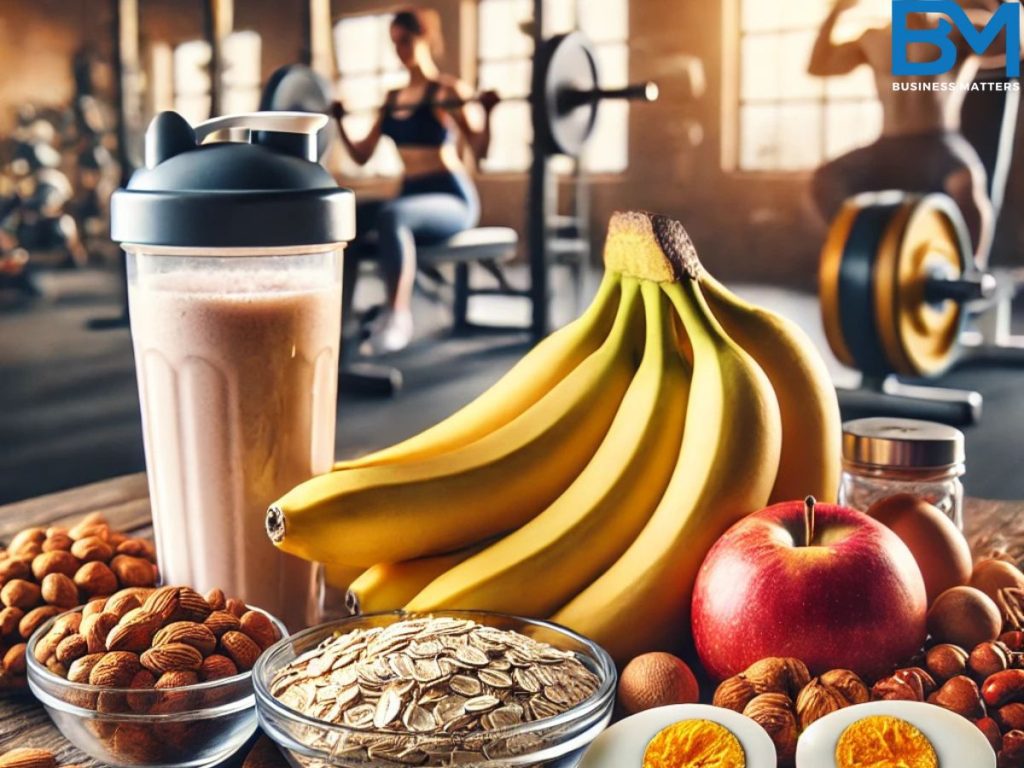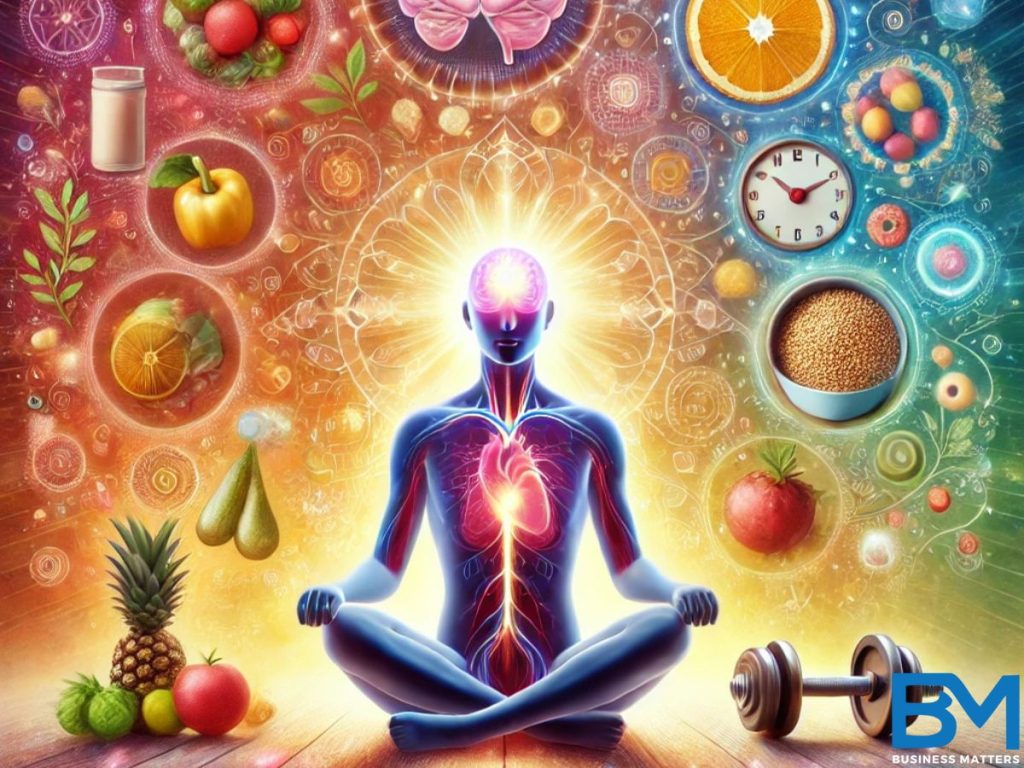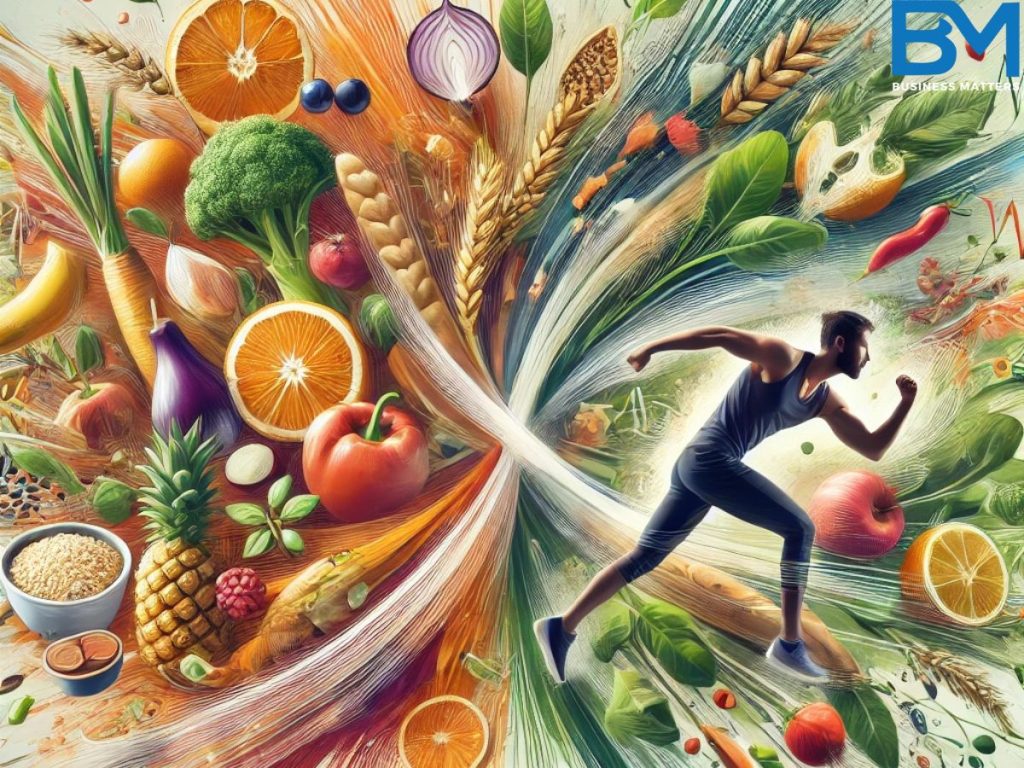When we think about achieving optimal health, the two pillars that often come to mind are nutrition and fitness. While both are essential on their own, the synergy between them is where the magic truly happens. Nutrition fuels your body, and fitness keeps it active and strong. Together, they create a dynamic relationship that can transform your overall well-being. This article dives deep into the intricate connection between nutrition and fitness and how understanding this relationship can help you unlock your full potential.
The Foundation of Nutrition in Fitness
Nutrition provides the body with essential nutrients—carbohydrates, proteins, fats, vitamins, and minerals—to function properly. Here’s how each macronutrient supports fitness:
- Carbohydrates: These are your body’s primary source of energy. During exercise, your body converts carbohydrates into glucose, which fuels your muscles and brain. For endurance activities, complex carbs like whole grains, fruits, and vegetables are critical.
- Proteins: Proteins are the building blocks of muscles. After a workout, protein helps repair muscle fibers that have been stressed or damaged, promoting growth and recovery.
- Fats: Healthy fats are a concentrated energy source. They also support hormonal balance and long-term endurance, especially in low-intensity, prolonged activities.
- Vitamins and Minerals: Micronutrients like calcium, magnesium, iron, and vitamin D play critical roles in muscle contraction, oxygen transport, and bone health.
Without proper nutrition, your fitness goals—whether it’s building strength, improving endurance, or losing weight—become harder to achieve.
Also Read:- Global Leadership Trends, Skills, and Cross-Culture Explained
How Fitness Influences Nutrition

Fitness affects how your body uses and metabolizes nutrients. Regular physical activity improves digestion, increases nutrient absorption, and enhances metabolic efficiency. Here’s how:
- Increased Nutrient Demand: Physical activity creates a higher demand for nutrients. For example, athletes often need more protein and carbohydrates to recover and maintain energy levels.
- Enhanced Nutrient Uptake: Exercise improves insulin sensitivity, which helps the body utilize carbohydrates more effectively.
- Stimulated Appetite Regulation: Fitness impacts hormones like ghrelin (hunger hormone) and leptin (satiety hormone), helping you regulate food intake more effectively.
Pre-Workout Nutrition: Setting the Stage
What you eat before exercising sets the tone for your performance. A balanced pre-workout meal ensures sustained energy and optimal performance. Consider these guidelines:
- Timing: Eat 2-3 hours before your workout to allow digestion. For shorter timeframes, opt for easily digestible snacks.
- Carbs and Proteins: Combine complex carbs with a moderate amount of protein. For instance, oatmeal with a scoop of protein powder is an excellent option.
- Hydration: Drink water to ensure you’re well-hydrated. Dehydration can significantly impact your performance.
Examples of pre-workout meals:
- Greek yogurt with berries and granola.
- A banana with almond butter.
- Whole-grain toast with avocado and a boiled egg.
Post-Workout Nutrition: Recovery is Key
After a workout, your body craves nutrients to replenish glycogen stores, repair muscle tissue, and reduce fatigue. Here’s what you need:
- Protein for Muscle Repair: Consuming 20-30 grams of protein within an hour post-workout aids recovery. Opt for lean sources like chicken, fish, tofu, or protein shakes.
- Carbohydrates for Energy: Replenish glycogen stores with fast-digesting carbs like rice, potatoes, or fruits.
- Hydration: Replace lost fluids and electrolytes with water or a rehydration drink.
Example post-workout meals:
- Grilled chicken with sweet potatoes and steamed vegetables.
- A protein smoothie with banana, spinach, and almond milk.
- Quinoa salad with chickpeas and a side of fresh fruit.
The Role of Hydration in Fitness
Water is often overlooked but plays a vital role in fitness. Dehydration can lead to fatigue, reduced endurance, and muscle cramps. To stay hydrated:
- Pre-Workout: Drink 16-20 ounces of water two hours before exercise.
- During Workout: Consume 7-10 ounces every 20 minutes.
- Post-Workout: Replace lost fluids by drinking 16-24 ounces for every pound of body weight lost during exercise.
Electrolyte-rich drinks are beneficial for high-intensity or prolonged activities, especially in hot conditions.
Fitness Goals and Nutrition Strategies

Whether your goal is weight loss, muscle gain, or improving athletic performance, tailoring your nutrition is crucial:
- Weight Loss:
- Focus on a calorie deficit by consuming fewer calories than you burn.
- Prioritize high-protein, low-calorie foods to maintain muscle mass.
- Include fiber-rich foods like vegetables and whole grains to promote satiety.
- Muscle Gain:
- Eat a calorie surplus with a focus on protein intake (1.6-2.2 grams per kg of body weight).
- Include strength training to stimulate muscle growth.
- Distribute protein intake evenly across meals.
- Endurance Performance:
- Prioritize carbohydrates for sustained energy.
- Incorporate healthy fats for prolonged activities.
- Use supplements like caffeine or beetroot juice for a performance edge.
Common Nutrition and Fitness Myths
- Myth: Carbs are bad for you.
- Truth: Carbs are essential for energy, especially during exercise.
- Myth: You need supplements to see results.
- Truth: Whole foods can meet most nutritional needs. Supplements are optional.
- Myth: Exercise alone is enough for weight loss.
- Truth: Nutrition plays a larger role in weight loss than exercise alone.
- Myth: Skipping meals aids weight loss.
- Truth: Skipping meals can lead to overeating later and hinder metabolism.
Tracking Progress: The Balanced Approach
Tracking your nutrition and fitness progress helps you stay on course. Consider these methods:
- Food Journals: Record your meals to identify patterns and areas for improvement.
- Fitness Apps: Use apps to track workouts, steps, and caloric burn.
- Regular Check-Ins: Assess progress with measurements, photos, or performance benchmarks.
Avoid becoming overly fixated on numbers. Instead, focus on how you feel and the consistency of your habits.
The Mental Connection: Nutrition, Fitness, and Mood

Good nutrition and regular exercise are powerful tools for mental health. They:
- Boost Mood: Physical activity releases endorphins, while balanced nutrition supports serotonin production.
- Reduce Stress: Both help regulate cortisol, the stress hormone.
- Enhance Cognitive Function: Improved blood flow from exercise and brain-supporting nutrients like omega-3s enhance focus and memory.
The Power of a Holistic Lifestyle
Combining nutrition and fitness isn’t just about aesthetics or athletic performance. It’s about living a vibrant, energetic life. When you nourish your body with wholesome foods and stay active, you’re investing in your long-term health.
Remember, there’s no one-size-fits-all approach. Listen to your body, experiment, and find a routine that suits your lifestyle. The connection between nutrition and fitness is more profound than we often realize, and embracing both can lead to incredible transformations—inside and out.
Are you ready to start your journey? Begin today by making small changes in your diet and activity levels. Over time, these incremental steps can lead to monumental results. Remember, nutrition and fitness are not separate paths but two sides of the same coin, working together to unlock your full potential.


